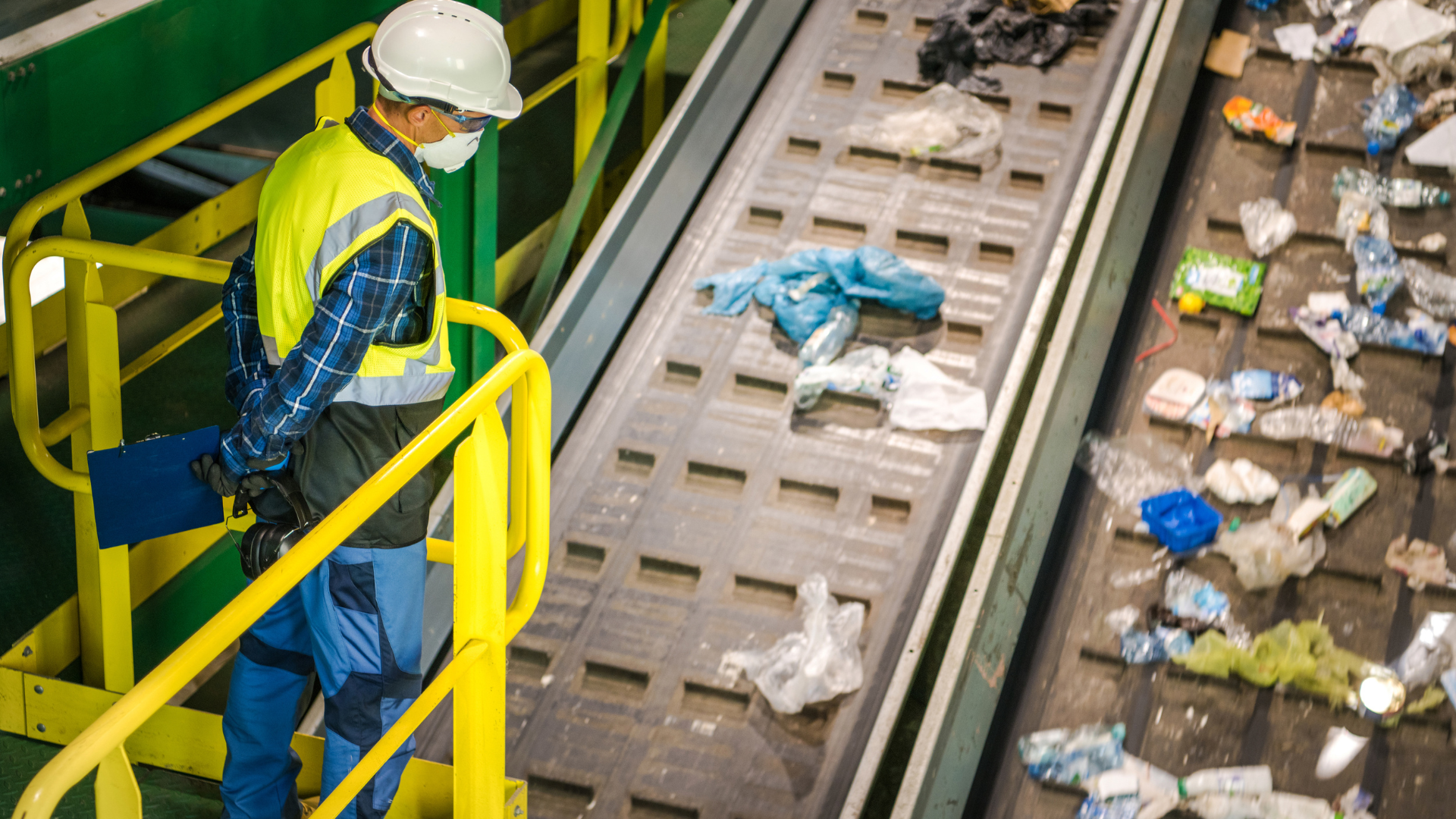
In logistics, recycling and waste management are two important terms. Recycling is taking materials that would otherwise be considered waste and turning them into new products. Waste management is the process of handling, transporting, and disposing of waste. The logistics industry plays a vital role in recycling and waste management. Companies in this industry are responsible for collecting, sorting, and transporting recyclable materials to the appropriate facilities. They also transport waste to landfill sites or incinerators. This industry is constantly evolving to find more efficient and sustainable ways to recycle and manage waste. As our understanding of proper waste management and its effect on the environment grows, so does the need for innovative solutions in this field.
Recycling in the Logistics Industry
In the logistics industry, recycling is the practice of reusing materials that would otherwise be discarded. This includes the repurposing of packaging materials, pallets, and other reusable commodities. Recycling processes in the logistics industry may include the recovery and reuse of pallets, crates, and containers; the sorting and repackaging of materials; and the reuse of scrap and damaged materials. While necessary, these processes can put a significant strain on company finances if not planned out properly. A waste audit, here, can play a pivotal role for businesses, not just in terms of long-term sustainability but profitability too. As for getting a better understanding of what a waste audit entails, resource pages like https://wolfexpensesolutions.com/recycling-expense-reduction/ can prove quite insightful.
There are many benefits to recycling in the logistics industry. Recycling can help to reduce costs associated with waste disposal, as well as help to improve the sustainability of operations. In addition, recycling can help to extend the life of products and materials and provide an alternate source of raw materials for manufacturing processes. While it is beneficial, it is essential to note that not all materials are recyclable. It is vital to research what items are accepted by local recycling facilities before attempting to recycle them. Additionally, some items may be recycled but require special handling or processing to be appropriately recycled. For example, certain plastics can only be recycled if they are clean and free of contaminants.
Overall, recycling is a beneficial way to reduce waste in the logistics industry. However, it is crucial to research what items are accepted by local recycling facilities before attempting to recycle them.
Waste Management in the Logistics Industry
The logistics industry is responsible for transporting and storing goods, often resulting in a lot of waste. Proper waste management is essential to ensuring that the environment is protected and that businesses operate efficiently. The logistics industry generates many types of waste, including packaging materials, pallets, and shipping containers. It is important to recycle or reuse these materials whenever possible to minimize the waste sent to landfills.
There are also several ways to reduce the waste generated by the logistics industry. One way is to use returnable packaging, which can be used multiple times before being recycled or disposed of. Another way is to use eco-friendly shipping methods, such as rail or sea transport, which have a lower impact on the environment than road transport.
Proper waste management practices are essential for the logistics industry’s environmental protection and business efficiency. If those waste management practices can’t be accomplished on-site, logistic companies could look for dumpster rental and waste disposal services to haul away and recycle commercial and industrial trash and debris.
Renting skip bins for waste disposal to separate general waste from recyclables is a commendable way to reduce landfill contributions. You can place them throughout your facility and encourage your employees to make use of them. That being said, you can consider renting skip bins from reputable providers like Essex County Skips to ensure effective waste management practices and minimize environmental impact.
Logistics Company Strategies for Recycling and Managing Waste
In order to be sustainable, logistics companies must have strategies in place for recycling and managing waste. There are many ways to recycle and manage waste, so finding the best method for the company is essential. One way to recycle is by using recycled materials. This can be done by using recycled products or by recycling products ourselves. Recycled products are often cheaper and just as good as new products, so this is a great way to save money and be sustainable. Another way to recycle is by donating unwanted items to charity. This is a great way to reduce waste and help those in need.
Waste management is another essential aspect of sustainability. There are many ways to manage waste, such as reducing, reusing, and recycling. In all cases, collecting waste properly is crucial, and an El Paso dumpster rental service or a similar service elsewhere could be the key. Once you have all your garbage together, then you can find the method that best fits the company’s needs.
Reducing waste can be done by using less packaging or choosing products with less packaging. Reusing items is a great way to reduce waste and save money. Recycling is also a great way to reduce waste and help the environment. Logistics companies must have strategies for recycling and managing waste to be sustainable. By recycling and managing waste, money is saved.
Proper Logistics Planning Leads to Better Recycling and Waste Management
When it comes to recycling and waste management, logistics play a vital role. By understanding how these processes work, businesses can save money and resources while reducing their environmental impact.
There are many different recycling programs, each with its benefits and challenges. By taking advantage of these programs, businesses need to understand how they work and what materials can be recycled.
Waste management is another critical part of logistics. By properly disposing of waste, businesses can reduce their environmental impact and save on disposal costs.
By understanding the basics of recycling and waste management, businesses can save money and resources and reduce their environmental impact.
